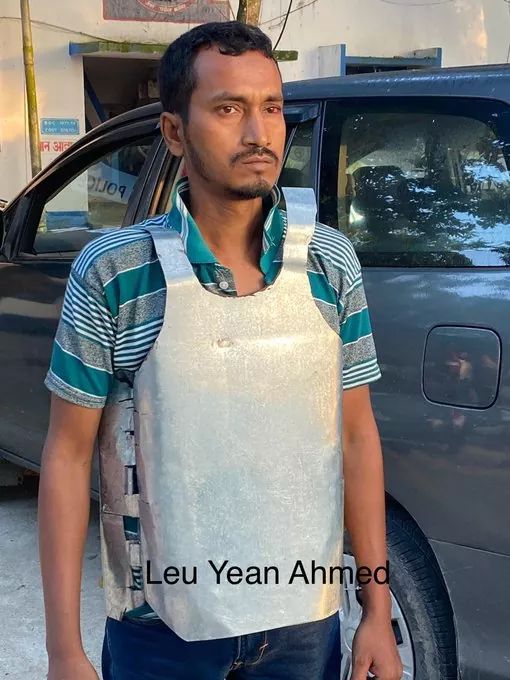By Mirza Mosaraf Hossain and Najiya O, TwoCircles.net
At around 2 a.m. on September 19, a National Investigation Agency (NIA) team with local police and civic volunteers comprising 40-50 personnel, mostly in civil clothes, picked up 9 Bengali Muslims in a joint raid in Kerala and West Bengal. Mosaraf Hossein, Iyakub Biswas, and Murshid Hasan were arrested from the Ernakulam district of Kerala, while Abu Sufiyan, Leu Yean Ahmed, Atiur Rehman, Najmus Sakib, Mainul Mondal, and Al Mamun Kamal were arrested from their respective homes in Murshidabad district of West Bengal.
The NIA accused them of being Al Qaeda terrorists planning to carry out extensive terror attacks in different parts of the country including the national capital, and that the terror module was radicalized by Pakistan-based operatives of the terror outfit. Digital devices including mobile phones and laptop, harmful literature, a ‘locally fabricated body armour’ etc were reportedly seized from the arrested. After the arrest, the Kerala police are carrying out a parallel investigation, collecting data on migrant workers in the Ernakulam district. Meanwhile, the arrested people were said to be either taken to Delhi to present them before the magistrate or to Bengal for more collection of evidence. However, the exact information is not known to the families.
Family members of the arrested people, while talking to TwoCircles.net alleged that the NIA team beat up their sons, brothers before the arrest and in some cases the family members alleged that they were beaten and forced to sign on blank papers. The family members said that they were not informed of the reason for arrests and where their kin were taken.
The families said that it was only through media and social media that the family members got to know of the alleged link of the arrested people with terrorist groups. The fact-finding missions by several groups also confirmed the same.
Mosaraf Hossein and Atiur Rehman
“The NIA team entered our home breaking the main door at around 2 am, calling Atiur’s name when everyone was sleeping. The team started beating him when they saw him and ransacked the whole house for an hour but did not get anything. They didn’t reply when we asked why they were beating him and ransacking the house.” This is how Yusuf Ali Mondal, brother of Mosaraf Hossein and Atiur Rehman, described the NIA raid at their house in Murshidabad of West Bengal on September 19, 2020.
“We pleaded with the team to tell us the reason for his arrest and tried to explain that he was a good student and a good human being and everybody in the village knew it. There was no police complaint against him in the local police station and we urged them to check it. But the only reply they gave was ‘you will get to know everything at the right time,” Yusuf said.
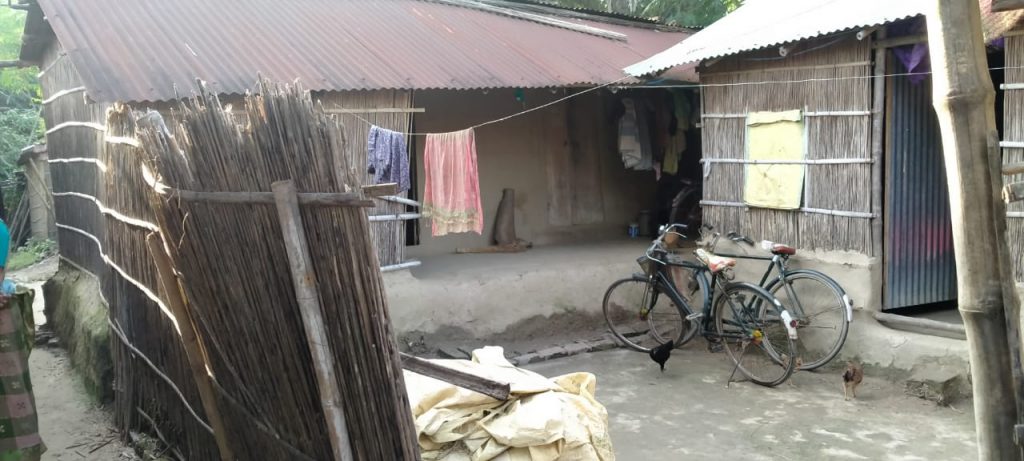
Yusuf added that they took away the voter ID card, Adhaar card, and bank passbook of Atiur.
The brothers hail from Ghatipara-Sarbapalli village in Jalangi block of Murshidabad in West Bengal. Their father Tojimuddin Mondal (60) used to sustain his family of ten members – including his wife, seven sons and a daughter – by tilling a small portion of his fields. He managed to educate his children with difficulty and the children passed either matriculation or higher secondary board exams. However, faced with financial difficulties, the children had to discontinue their studies and find jobs in the informal sector.
Mosaraf Hossein (38) had to leave his studies after enrolling in a college and set off to Kerala for work 16 years ago to help his family overcome poverty.
He undertook several jobs in the informal sector and was working in a textile shop in Ernakulam in the southern state when arrested by the NIA. He was living there with his wife and two children. The family in Murshidabad came to know of his arrest through the media only.
According to reports, his neighbours, employer and house owner at Ernakulam had no suspicions about him. He used to go out to work and take care of his family. His children were studying in an English-medium school nearby, but after the arrest, the family has returned to Murshidabad. His family says that he has been working in the textile shop for seven years and would open and close the shop himself and his employer would keep the keys with him. “This shows the trust he had in him,” the family said.
Atiur (24), a student of English Honours in Karimpur College in Nadia district following a Diploma in Elementary Education, gave tuitions to children to meet the expenses of his education and was preparing for the West Bengal Civil Service Examinations. He was arrested from his home in Murshidabad.
“Our relatives and neighbours are visiting us and assuring us again and again, sometimes before media, that they cannot believe that the brothers may have links to any extremist groups,” says Yusuf Mondal
He called the very possibility as baseless, adding that Atiur had not even visited Kolkata yet and Mosaraf was working in another state to help the family.
Yusuf accused the media of airing baseless allegations and not showing the family’s version.
When asked if they were arranging any legal help, Yusuf said, “Even though we can’t afford the money needed for it, we have to do something so that they can get the legal support to prove themselves innocent.”
“We all love our country and want severe punishment to those who try to carry out extremist activities in our land. But arresting innocent people like my brothers without any proper investigation is not something expected from the highest investigative agency of the country,” Yusuf added.
Leu Yean Ahmed
Leu Yean Ahmed (36) was living with his 66-year-old mother at Domkal Old-BDO Junction in a shabby straw-tiled hut. His father died 11 months ago. His elder sister and her daughter were staying with them for the last 5 to 7 months after a scuffle with her husband. He was the sole bread-winner of the family. Because of their poverty and not having a nice house, he didn’t marry and was planning to marry after constructing a house. Recently, he got a sanction for building a house under the Pradhan Mantri Awas Yojana with which he started the foundation of the house, but could not complete it.
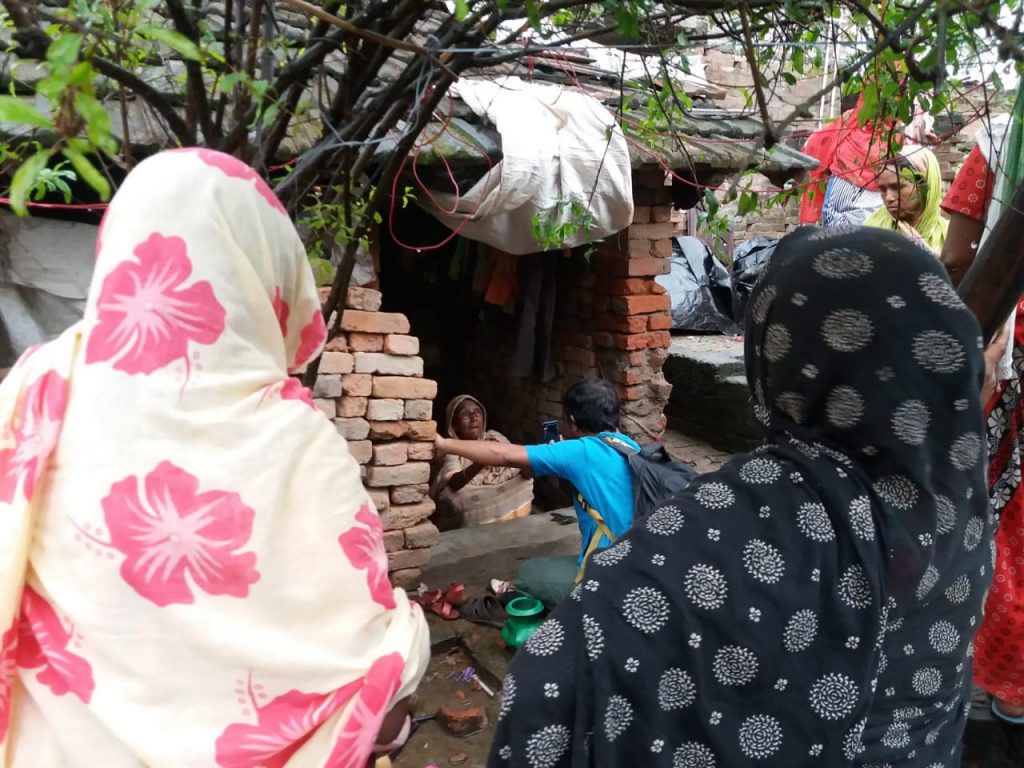
Dr Abul Kalam Azad, the maternal uncle of Leu Yean and a homoeopathic doctor by profession, informed TwoCircles.net that he had provided all the expenditures for his nephew’s education since childhood as his father was very poor. It was the uncle who had advised Leu Yean to pursue a diploma training to be an electrician, instead of pursuing a degree in Computer Science that he had already taken admission, intending to make him stand by his poor family. He was offered a post as ‘electrician cum caretaker casual’ in the Domkal College with a monthly remuneration of Rs 2500 by one of the teachers who knew him very well and he has been working there since 2010.
“Leu Yean has goodwill with all in his locality and he got the job at the college because of his good behaviour.
Because of his trustworthiness, he used to get electric works from the local people also,” said the uncle.
Highly interested in education, he also completed his Masters’s degree in Bengali from the Netaji Open University while pursuing work as an electrician.
On the night of 19 September, Leu Yean Ahmed was arrested from his home. The family didn’t know anything about why and where the NIA team took Leu Yean.
The raiding team had reportedly verbally abused the family members and forced his sister to sign on various blank papers. They didn’t know what the NIA team had taken from the house and the team also didn’t provide them with any lists of things they took with them. It was only through the media that they got to know about the alleged terror links and arrest of the other eight people as well as the ‘bullet-proof jacket’ that they had procured, which could be used as armour. “But actually, that is a shield used for electrical works, at the time of welding and other works. Also, he used it in the winter nights when he would come back home from work, to protect himself from the cold winds”, the uncle told TwoCircles.net.
He also rejected the claim that a country-made gun was found in the toolbox of the bike. “Leu Yean’s bike doesn’t have any toolbox. He used to carry materials needed for electric repairing activities on the back seat of the bike,” he said.
From September 22 to October 1, Leu Yean was in police custody in Kolkata.
But the family came to know of it through the media only. However, they now don’t have any knowledge about where Leu Yean is kept and the investigative agency hasn’t provided them with any information regarding it. On 29 September, Leu Yean was taken to the village house and left within one hour.
When asked whether they were taking any legal support or not, he replied in a sad tone, “Since the arrest, it has become very difficult for my sister to arrange a meal in the house as Leu Yean was the sole bread-winner. They don’t have any cultivating land. I earn a very small income. So, we cannot think of any legal initiatives because of the money. We have nothing left except keeping trust in Allah.”
Abu Sufiyan
At around 3 a.m. on the night of September 19, the NIA team entered the house of Jinnatul Islam and slapped him twice first before asking about his brother Abu Sufiyan showing his picture. Forced by the NIA, Jinnatul took them to the house of his brother, who was living nearby. Utterly frightened by the presence of many officials, Abu Sufiyan tried to escape but was caught and beaten with the handle of a spade on his hands and toes.
His wife Nurunnesa Bibi and 15-year-old son Wasim Akram were also slapped and punched, and another son aged ten was shaken up by his hairs.
“Abu Sufiyan was taken to a BSF camp in Jalangi instead of the local police station, and was made to write in a blank paper that he was not beaten by any police,” Jinnatul Islam told TwoCircles.net.
As per the family, the NIA team took away Abu Sufiyan’s tailoring-related things, a machine that cuts tin-like materials, a Bank passbook, and an Aadhaar card.
Jinnatul Islam works as a teacher in a Madrasa Sikha Kendra on a contractual basis with a negligible remuneration. Abu Sufiyan is the youngest of four brothers, living in Kalinagar village in Murshidabad’s Raninagar block. They live in two separate houses, two brothers in each house, built on a small portion of land owned by their father. Abu Sufiyan had earlier worked as a tailor in Delhi for a few years and continued the job after his return to the village.
Apart from tailoring, he was able to do household-related works like welding and covering grills with plain sheets, and sometimes he also worked as a mason.
Jinnatul refuted the claim that his brother was linked with any terrorist network. “His life revolves around his tailoring work at the market and his home. He is also a diabetes patient, has sight problems, and nowadays cannot work properly as before. Under such circumstances, how can he link with any extremist outfits?”
Abu Sufiyan, said to be the mastermind of the (terrorist) operation, is alleged to have dug a ‘tunnel’ in his home for anti-social activities and the NIA team is said to have procured many ‘raw materials for preparing fire-arms’ including chocolate bombs from his house. Jinnatul refuted the allegations and clarified that Abu Sufiyan’s son had kept some firecrackers, which he had bought for the last Eid, in the empty chamber in the house. As Abu Sufiyan had to leave his rented tailoring room in the market due to financial difficulties in the lockdown period, he carried all the electric materials, switches, bulbs, fans, wires, and many other things from the shop to his house and kept them in the square pit dug for the latrine chamber. “The agency and the mainstream media are distorting these facts and are criminalizing him,” said Jinnatul.
He got upset when asked about the media coverage on the discovery of a so-called ‘tunnel’ in his brother’s house. He said, “Whatever has been broadcasted about the square pit in my brother’s house is falsely implicated so that he can be framed as a terrorist.
But the fact is, as already said since we have less portion of land for living, we construct latrine chambers under the house and like us, many others in this locality also do so. It is just a square pit dug for building the latrine chamber and nothing else that is being shown in the mainstream media.”
When asked about the legal actions they were planning to take, Jinnatul said, “The economic condition of our family is very bad. My other brothers do very negligible jobs to run their families.
We don’t know whom to talk with, what steps we should take. Though Abu Sufiyan needs legal support, we are unable to provide it to him.”
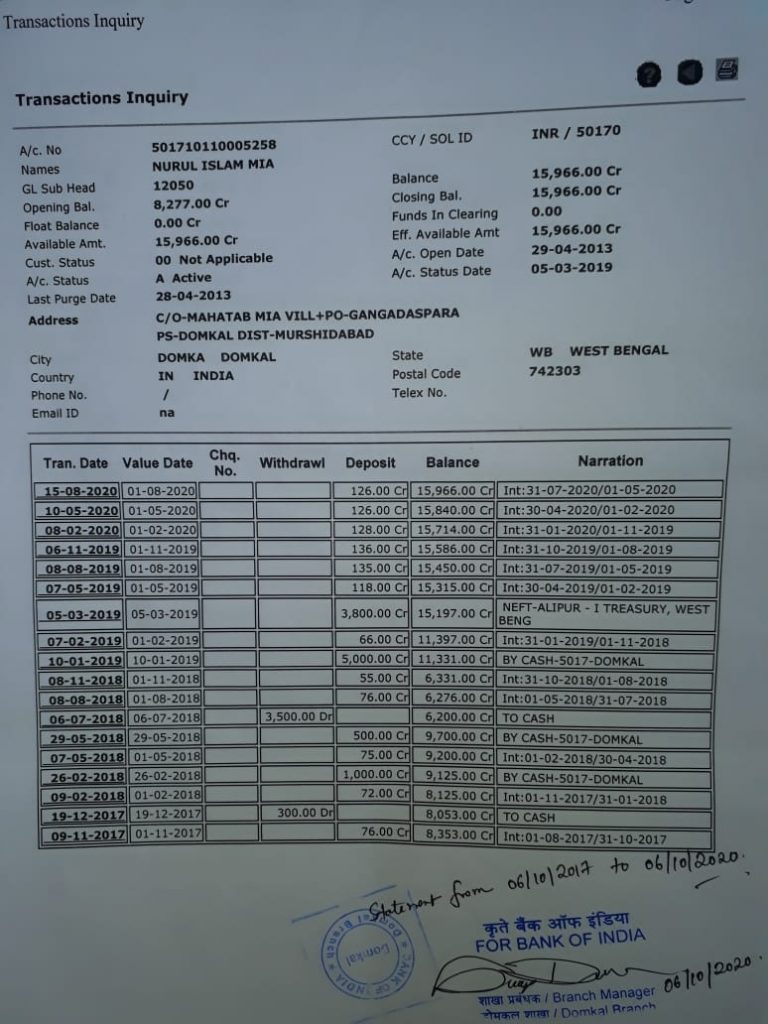
Najmus Sakib
Najmus Shakib, of Hitanpur village under Domkal police station, was arrested from his home. When the raiding NIA team reached their house, Sakib himself came to the main door of the house and stood beside his brother, with whom the officials were asking about him.
Sakib (22) was pursuing a degree in Computer Science from Domkal College. Despite suffering from several illnesses such as thyroid problem, stone in the gallbladder, and jaundice, Sakib was drawn to reading books, with which he made himself busy at home. After ransacking the whole house, the NIA team took away his school-college certificates, Aadhar card, PAN card, Android phone and its charger, and a book that teaches the process of offering prayer, along with his elder brother Rizwan Ali’s damaged laptop. In addition, as per the family members, Sakib was also rebuked for his beard by the team members, and Rizwan was forced to sign some empty poly pack bags.
Sakib is alleged to have had monetary transactions with the terrorist networks. TwoCircles.net learned that his bank account was a joint one with his father in which the average balance varied from Rs 8000 to Rs 16000 between November 2017 and August 2020. Its current balance is Rs 8000, which includes the transaction of Rs 1500 under the ‘Yubashree’ scheme, a state government scheme for the unemployed youths per month.
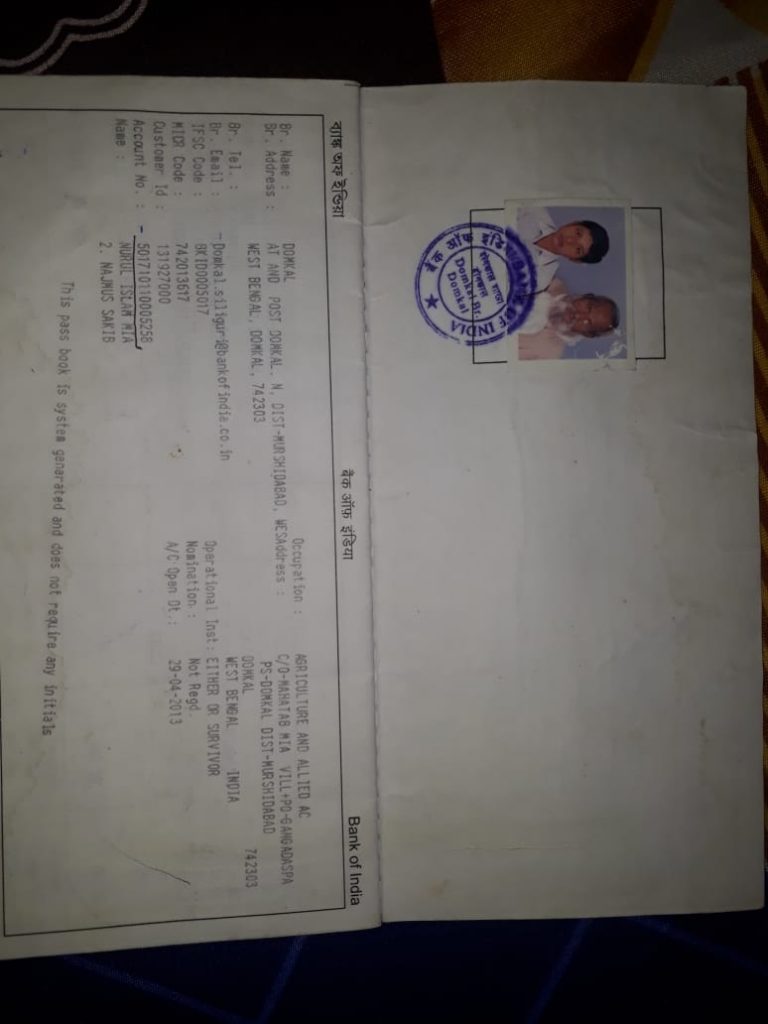
Rizwan refuted the allegations of terror link as ‘rubbish’. “The investigative team has done a blunder. They might have got the wrong information. Sakib cannot even stand straight because of his illness. He has never been to even Kolkata. His world revolves around the house, the mosque in the village and his college. Then how can he have links with any extremist outfits?” he asked. At a loss of words, he managed to say – “His life has been ruined. He was a brilliant student but this arrest will worsen everything for him.”
Murshid Hasan
Murshid Hasan (23) lived with his parents in a small hut fenced with jute-sticks in the village of Kalinagar in Raninagar block, the same village as Abu Sufiyan. The father being unable to do any physical labour, the family survived on the money earned by the son. Sources said that Murshid was under treatment for psychiatric and neurological problems. Yet he went to work in Kerala’s Ernakulam to earn money. The NIA team arrested him from Ernakulam, where he was working as a labourer in a construction site. The investigating officers had seized a laptop from him, but reports suggest that it was not in a working condition for three months.
Iyakub Biswas
Biswas also hailed from Murshidabad and worked in a food company at Perumbavoor in Ernakulam which supplied food items to the nearby restaurants.
He used to work from midnight till mid-day in the company, take some rest and again resumed work in the evenings, according to reports quoting his employer. He lived near the food company itself.
The Muslim-dominated and poor Murshidabad district
All the nine arrested people hail from three Muslim-dominated blocks of Murshidabad district- Jalangi (with 73.27% Muslim population and 50 km away from the district headquarters Berhampur), Raninagar (with 80.78% Muslim population and 35 km from Berhampur) and Domkal block (with 89.69% Muslim population and 33 km away from Berhampur).
Situated on the left bank of the river Ganges, Bengal’s Murshidabad district has the highest Muslim population with 66.27% out of the total population of the district, according to the 2011 Census Data. The headquarters of the district, Berhampur, is approximately 200 km away from Kolkata. The district has quite a large share with the border of Bangladesh. According to available reports, while the overall literacy rate in West Bengal is 76.3%, the Muslim literary rate 69.5% which is much lower. But the Muslim literacy rate in Murshidabad is 63.2%, which is much lower than the average rate of Muslim literacy throughout the State.
Another report finds that about 15% of school dropouts in the age group 6-14 in the state are from the Muslim community. The report upheld monetary problems, distance problems, lack of infrastructure facilities etc as the reasons behind dropouts. Since Murshidabad has the highest Muslim population, it is arguable that the cases of the dropouts would be higher than any other district of the State. And this may be the obvious reason for the migration of Muslims to other States from a very early age to work in various informal sectors as daily labourers, construction labourers and many other forms of minimal jobs to run their poor families.
Visits of fact-finding missions
On 24 September, a joint delegation from the All India People’s Forum (Malay Tewari), Association for the Protection of Democratic Rights (Milon Malakar and Matiur Rahman), Anti-NRC Solidarity Forum (Mir Rakesh Roshan, Alamgir Hossain, Samim Mansur, and Abdul Ghani), Azad Hind Federation (Saurab), People’s Review (Soumya Mandol) and All India Students Association (Rudra Prabhakar Das) went to the villages in Murshidabad and conducted fact-finding in this regard.
They spoke to the families and neighbours of Abu Sufiyan, Murshid Hasan, Nazmus Sakib and Leu Yean Ahmed.
Samim Mansur, on behalf of the Anti-NRC Solidarity Forum, wrote about Murshid in his report after talking with the mother. “At around 10 in the morning of 19 September, a man in white clothes came from the police station and informed Murshid’s mother that his son has been arrested by the Delhi Police. But he did not say why he was caught or where he was kept.” It continues, “At present, they are surviving on food given by neighbours. Neighbours said in one word, “He can’t be a terrorist.” Except for two, all the police officers were in plain clothes and the villagers ‘did not see any name or rank on anyone’s dresses,’ according to the reports prepared by Malay Tewari and Samim Mansur after their visit.
Tewari attacked the operational procedure of the investigative team and questioned the NIA team’s direct reference to the detainees as ‘terrorists’.
“The nature of the NIA’s operation is conspiratorial and designed to create panic. The siege of the village in the middle of the night by a large force, the smashing of doors, the beatings and insults – all these show the NIA’s hostile and oppressive attitude. At the same time, not giving any arrest memo and seizure list to the families of the detainees and taking them to a BSF camp instead of a police station shows that this highest investigative body of the country does not follow the minimum legal procedures. The whole operation can be called ‘kidnapping’ rather than ‘arrest’.
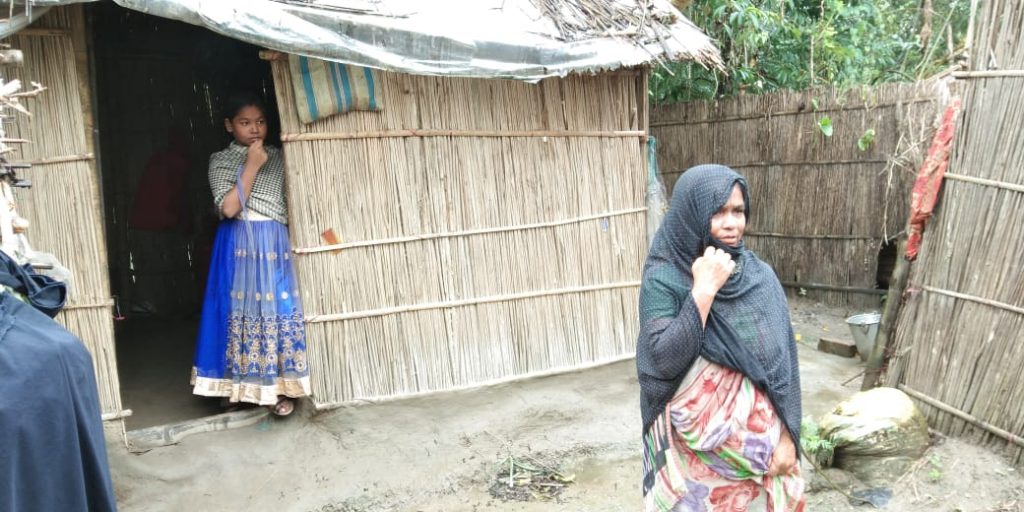
Five days after they were taken away, when our fact-finding team visited their houses, no one in the family knew for what crime, why, and where they had been taken. They did not get any information even after visiting the local police station. Only from the media and its aggressive propaganda, they came to know that the arrested were ‘terrorists’. The conspiratorial nature of the NIA raid is clear from the fact that the family members were made to sign multiple blank papers and blank poly pack bags,” Tewari wrote in his report.
His report emphasized the good character and helping nature of the arrested persons in the opinion of the villagers, who he recollects, “said in unison that they did not believe the NIA’s investigation at all,” it said. He also raised the issue of the role of the local police administration.
He said in the report, “The presence of local police officers and civic police in the operation shows that it was not carried out without the knowledge of the state administration.” He points to the refusal of the police to give any information to the families.
Again on 27 September, another joint delegation of the APCR, the APDR, and the Committee for the Release of Prisoners went to the houses of the arrested people in Murshidabad. They also mentioned the extreme poverty of the arrested persons which the corporate media was not conveyed properly. The media was spreading false propaganda that even the toilet chamber was a secret tunnel.
The delegation urged ‘to immediately stop all Islamist and racist propaganda motivated by political motives’ and called for the cancellation of the UAPA and the NIA.
The Kerala chapters of the APCR and the National Confederation of Human Rights Organisations visited Perumbavoor in Ernakulam on different fact-finding missions. Both teams opined that the persons arrested had no suspicious behaviour and used to work honestly and hard. Their employers and neighbours find it hard to believe the NIA version that the persons were linked to the terrorist group.
“The Al Qaeda that we know is an international terrorist organization which hijacked three aeroplanes and attacked the Twin Towers and the Pentagon building in the United States using highly sophisticated methods and is no more functioning in the world according to international powers.
And here, according to the NIA, three daily wage Bengalis working in Kerala wish to join it and carry out attacks in such a strong country as India, which is hard to believe,” said Reny Aylene, national secretary of the NCHRO. He referred to Islamophobia and the phobia towards migrant workers (that they are prone to criminal acts) as the two main factors which give acceptance to the NIA version in Kerala society.
Reny Aylene said that generally, migrant workers would go out to work in the morning and return evening or night when they would retire to take rest. They use their weekends to buy essential items and take rest. Referring to the seized laptop, he opined that not all use laptops to send mails but rather many use it to watch films and listen to songs. He added that being the person in charge of home department in the state, Kerala Chief Minister should have at least issued a statement on the national investigation officers arresting people in the state, rather than ignoring it as a matter of the NIA.

